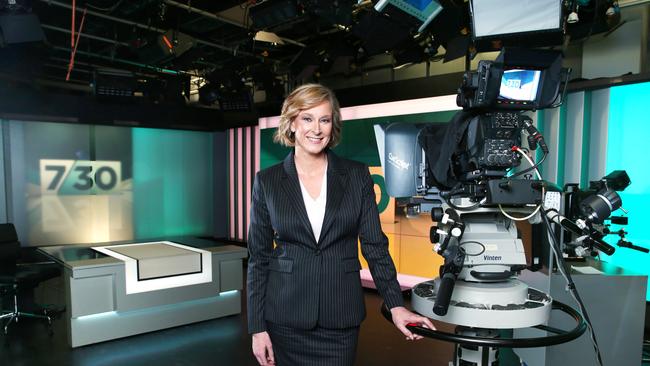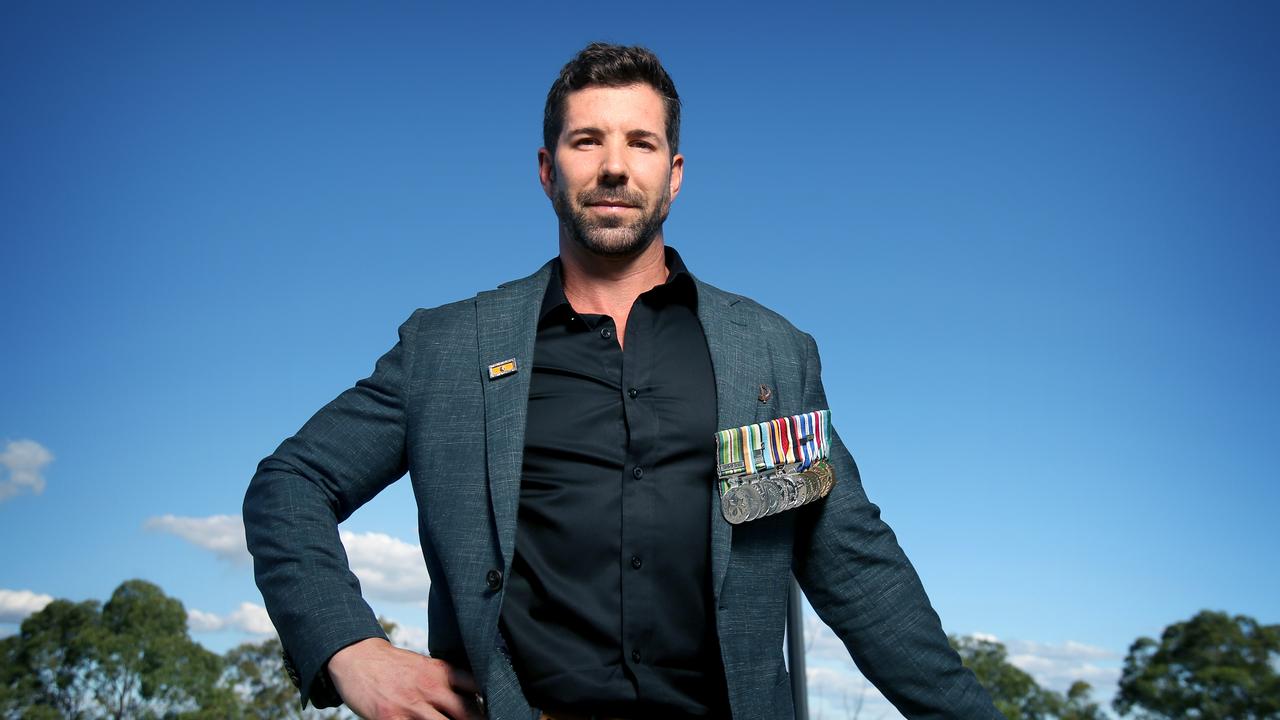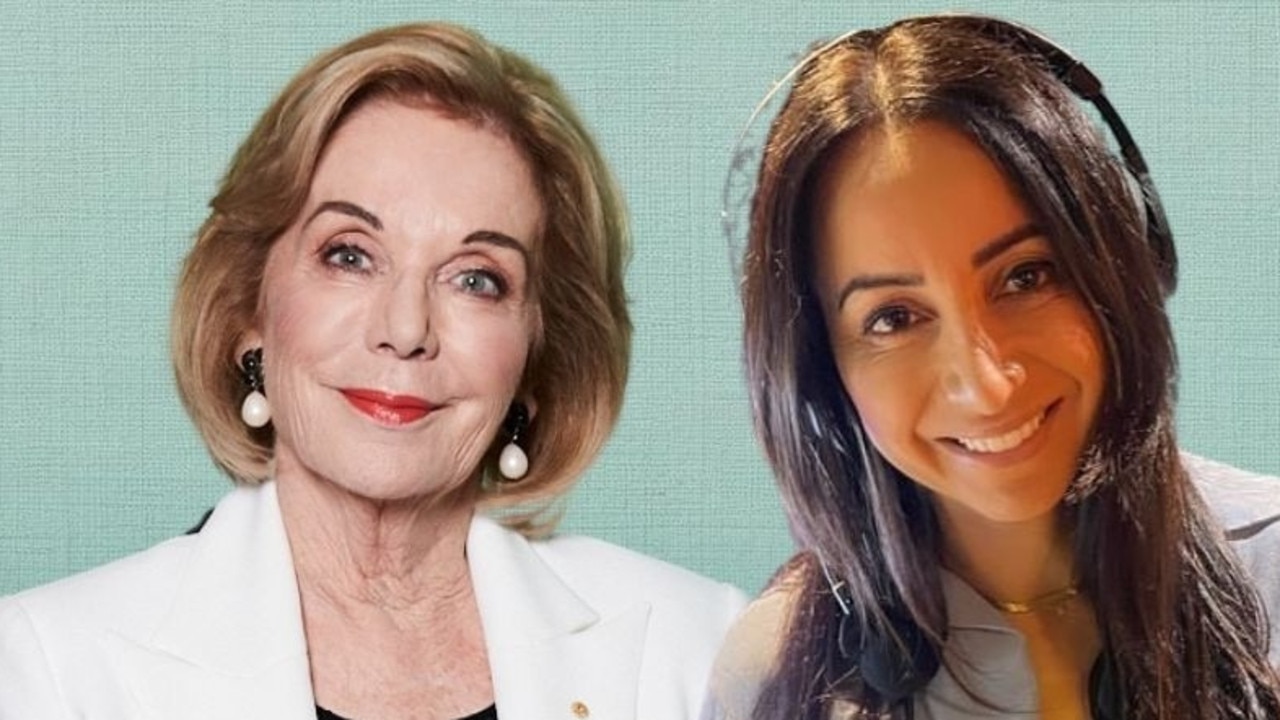Asking the hard questions pays off for 7.30
ABC’s 7.30 episode about franking credits beat Network Ten’s relaunch of Dancing with the Stars.

It is with some pride that Justin Stevens, the executive producer of ABC’s 7.30, notes that the show’s recent episode about franking credits beat Network Ten’s relaunch of the popular Dancing with the Stars in the overnight metro ratings.
Since rejoining the current affairs program in late 2017, after working for several years on ABC’s Four Corners and the documentary series The Killing Season, Stevens said that evolution — not revolution — had been the team’s watchword.
“At the heart we are not doing anything 7.30 hasn’t done in the past,” he said.
“We are custodians of the program and our role is to enhance the trust the audience has in us by continuing the hard work Kerry O’Brien did over many years.
“It is far less about reinventing the wheel.”
Amid a string of high-profile interviews across 2018 between presenter Leigh Sales and guests including former FBI director James Comey, former US presidential candidate Hillary Clinton, Shane Warne, actor Yael Stone, and then ABC chairman Justin Milne (who announced his resignation on air), among others, 7.30 managed todeliver a solid ratings performance.
According to Oztam and Regional Tam data, 7.30 achieved an average of 815,000 viewers per episode in 2018, based on broadcast and iview on a consolidated 28-day basis. The show’s five-city metro timeslot share went up 0.5 per cent to 11.2 per cent, with its regional timeslot share increasing 0.8 per cent to 10.3 per cent, compared to 2017 (inclusive of broadcast and pay TV).
Nine’s A Current Affair, which had a national average audience of 1.075 million viewers per episode during the period, saw its share of all free-to-air channels (a narrower measure) grow from 16.8 per cent to 17.2 per cent.
According to Network Ten, its weeknight current affairs and comedy show The Project had an average national audience of 562,000, down 13 per cent on the previous year, though it will soon launch a major marketing campaign to celebrate the show’s 10th anniversary.
The weekend current affairs programs are a similarly mixed story. Seven’s Sunday Night hosted by Melissa Doyle had an average audience of 965,000 in 2018, down 25.8 per cent from the previous period. Ten’s The Sunday Project averaged 455,000 viewers — up 14 per cent — while Nine’s 60 Minutes, which achieved a national average audience of 1.034 million viewers per episode, saw its share of all free-to-air channels during its timeslot fall slightly from 19.6 per cent to 18.3 per cent on the same basis.
For 7.30, the show’s strength rises and falls on the back of Leigh Sales’s forensic interviews.
“Leigh has something this day and age which is broadcasting gold: credibility,” says ABC’s head of investigative and in-depth journalism, John Lyons.
“I’m disturbed to see so many journalists out there as supporters of the Coalition or flag-bearers for Labor or the Greens; I don’t see how that fits with the ethos of journalism. The more the media becomes fractured, embittered and partisan, the more the beacon of 7.30 and Leigh Sales shines.”
Sales, who recently signed to a further three years hosting the show, and who quickly disavows any interest in the vacant Q&A host’s chair, says members of the public value her tough questioning of those in power.
“Not a day goes by without someone coming up to me and thanking me, because I think they see the value in people in power being questioned and held to account,” Sales said.
“And the politicians keep coming back is because they know if you want to persuade someone to vote for you, there is no point someone throwing softballs, you need to be asked the things someone who doesn’t believe you might ask, so you have a chance to persuade them.”
Media analyst and Fusion Strategy managing director Steve Allen described the broadcast current affairs space as crowded.
“7.30 is doing OK in this market, where television audiences are declining in absolute terms due to fragmentation and competition,” he said.
“The problem when looking at 7.30’s annual share is how much Married at First Sight and My Kitchen Rules take before you even get to whatever Ten are doing — 7.30 should be compared with the trends for The Project and ACA, and its performance would be OK in that regard.”
But Allen cautioned that politics was increasingly hard to sell for TV audiences across the board: “With politics at this low point we find ourselves makes hard-edged current affairs difficult to appeal to the public.”
It is a point which Stevens readily acknowledges — but with a federal election looming, it is hard to avoid.
“We’ve seen the frustration get worse and worse as politicians finding it increasingly difficult to give engaging and straight answers on the show, knowing that the consequences if they are too frank will be other media picking up every admission and running with it,” Stevens said.
“There is frustration about the ‘shoutiness’ of politics right now, so where 730 can transcend the news cycle is by doing policy deep dives.”
Some of these in-depth reports have been split across three nights, such as recent examinations of topics including population, drought, housing and aged care. Other tweaks (amid a flat headcount and budget for the program) include a renewed emphasis on on-air promotions, new studio cameras which shoot in HD, and a parallel digital strategy for the under-40 demographic — who increasingly engage with the show on their mobiles and via social media.



